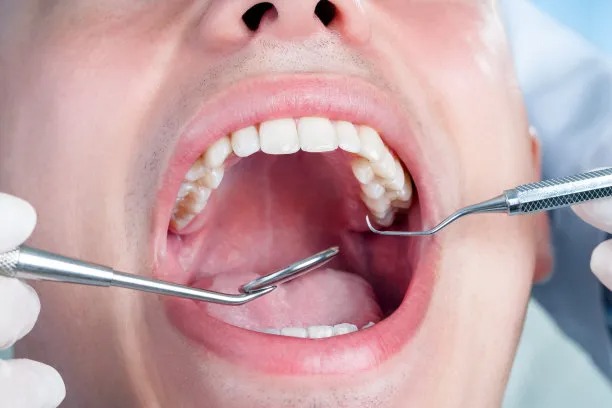Summary: Undergoing dental implant surgery can provide a successful long-term solution for tooth loss, but certain essential precautions must be taken to ensure optimal results. This article explores four crucial aspects that patients should consider before their dental implant procedure: conducting thorough research, consulting with a qualified specialist, understanding the recovery process, and maintaining good oral hygiene. By paying careful attention to these factors, patients can enhance their chances of a successful surgery and enjoy improved dental health.
1. Conduct Thorough Research Before Surgery

Before undergoing dental implant surgery, it is vital to conduct comprehensive research regarding the procedure. Understanding what dental implants involve, including the materials used and the surgical process, can help alleviate anxiety and ensure informed decision-making. Patients should explore various types of implants and their suitability for their specific needs.
Moreover, researching trustworthy resources is essential. Websites from dental associations, peer-reviewed journals, and professional organizations can provide valuable insights into the success rates and longevity of dental implants. This information can empower patients to have clear expectations of the outcomes and associated risks.
Lastly, reading patient testimonials can offer a firsthand perspective on the experiences of others who have gone through similar procedures. These narratives can provide insights into the challenges faced and the overall satisfaction post-surgery, which can be critically important in your decision-making process.
2. Consult with a Qualified Specialist
Finding a qualified dental specialist is one of the most crucial steps in the dental implant journey. Not all dentists have the same level of experience or training in implantology, so it’s essential to verify their credentials. Look for specialists who have received additional training in implant dentistry and inquire about their years of experience.
During your consultation, dont hesitate to ask about the procedures they employ, success rates, and potential complications. An experienced dentist should be willing to discuss these aspects openly and can provide a detailed treatment plan tailored to your oral health needs.
Additionally, establishing a good rapport with your dentist is essential. Comfort and trust are critical during the dental procedure, as patients who feel at ease with their healthcare providers are likely to adhere to pre-and post-operative instructions, enhancing their chances of optimal results.
3. Understand the Recovery Process
Understanding the recovery process is crucial to ensuring a smooth transition post-surgery. Patients should familiarize themselves with what to expect immediately after the procedure, such as pain management, swelling, and dietary restrictions. Knowing this information can help prepare the patient both mentally and physically for the recovery journey ahead.
Its also important to follow any pre-operative instructions provided by the dental specialist rigorously. This may include avoiding certain medications or foods that could complicate the procedure. Proper preparation will help minimize risks during the actual surgery and support a quicker recovery.
Finally, patients should be aware of the timeline for healing. While some may return to normal activities within a few days, others might experience a longer recovery period. Setting realistic expectations about the recovery time can help avoid frustration and ensure adherence to care recommendations.
4. Maintain Good Oral Hygiene Practices
Maintaining good oral hygiene is paramount before and after dental implant surgery. Pre-surgery, patients should ensure they are free from any gum disease or other oral health issues that could compromise the success of their implants. Regular brushing, flossing, and dental check-ups are key to achieving optimal oral health.
After the surgery, it is equally important to adhere to an oral hygiene routine. While the surgical site will need special care during healing, rigorous cleaning in other areas of the mouth should continue as usual. This helps prevent infections that could jeopardize the implant.
Moreover, patients should follow any specific post-operative care instructions provided by their dentist regarding cleaning techniques and products to use. Post-surgery maintenance of good oral hygiene will ultimately support the longevity of the dental implants.
Summary:
In conclusion, successfully undergoing dental implant surgery requires careful planning and understanding of several essential precautions. Conducting robust research, consulting with qualified specialists, understanding the recovery process, and maintaining good oral hygiene are all vital steps that contribute to the favorable outcomes of the surgery.
Each of these factors plays a significant role in not only the immediate success of the procedure but also in the longevity and health of the dental implants. By taking these precautions seriously, patients can ensure they achieve the best possible results for their dental health.
This article is compiled by Vickong Dental and the content is for reference only.
Vickong Dental
Vickong Dental is a large medical group established in Hong Kong in 2008 by professors from well-known medical universities in Guangdong and Hong Kong, as well as medical doctors from key national '985' universities (including Master's supervisors and senior professors). The chain of branches brings together expert dentists with PhDs and Master's degrees from Hong Kong and Mainland China, committed to providing high-quality dental treatment.
"Vickong Dental Practices the University Motto of 'Healing and Serving Society,' with a Stable Operation for Sixteen Years. It Has Been honored with Hong Kong Enterprise Leaders's Choice,' and is a Global Trusted Implant Center for the Nobel Implant System. Recommended by Hong Kong Metro Broadcast and Guangdong Television, it Serves Customers from Over Thirty Countries and Regions, Gaining the Trust and Favor of Citizens from the Guangdong-Hong Kong-Macau Greater Bay Area and Surrounding Cities.

Thousands of customers' unanimous praise
The most recognized and highly recommended dental service by customers in the Guangdong-Hong Kong-Macau Greater Bay Area
We Ensure You Receive Detailed Care and Attention Here
Hong Kong standards, Shenzhen prices, Your Trusted English-speaking dentists

Vickong Dental Medical-Grade Instrument Disinfection Process
Vickong Dental Medical-Grade Instrument Disinfection Process

Vickong Dental Chain: A Warm and Comfortable Environment for Treatment






Appointment Hours

Q&A
Why choose Vickong Dental?
Vickong Dental practices the university motto 「Medicine to Benefit Society」, with each branch bringing together highly qualified dentists with doctoral and master’s degrees from Hong Kong and the Mainland, and has maintained seventeen years of steady operation。Recipient of 「2024 Hong Kong Enterprise Leaders Brand」, 「2025 Hong Kong Enterprise Leaders Brand」, a Nobel Biocare Global Trusted Implant Center, and a brand recommended by Metro Radio Hong Kong and Guangdong TV。
To date, we have served customers from more than thirty countries and regions,earning exceptionally high word-of-mouth recognition and trusted recommendations from residents across the Guangdong-Hong Kong-Macao Greater Bay Area and surrounding cities
We have eight major branches in Zhuhai、Shenzhen,and a consultation and service assurance center in Hong Kong,so you can book a free consultation at any time for any questions,which is very reassuring.
If I do not accept the quotation after the CT scan, will I be charged??
No! As long as the actual treatment has not started, you will not be charged any fees.
Will there be any additional charges during the treatment process?
No, there won’t be any additional charges. Before treatment begins, we will clearly explain the treatment plan and its corresponding fees. Only after the patient agrees and signs the consent form will we proceed with the dental service.
Can I pay in Hong Kong dollars?
Yes. Vickong Dental accepts payment in Hong Kong dollars. The amount will be converted based on the exchange rate of the day, and the applicable rate will be clearly communicated to you in advance.
Can I reschedule my appointment at any time?
Yes. Please contact us via **WeChat** or **WhatsApp** as early as possible, providing your original appointment time and details, along with your preferred new date and time slot for rescheduling.













